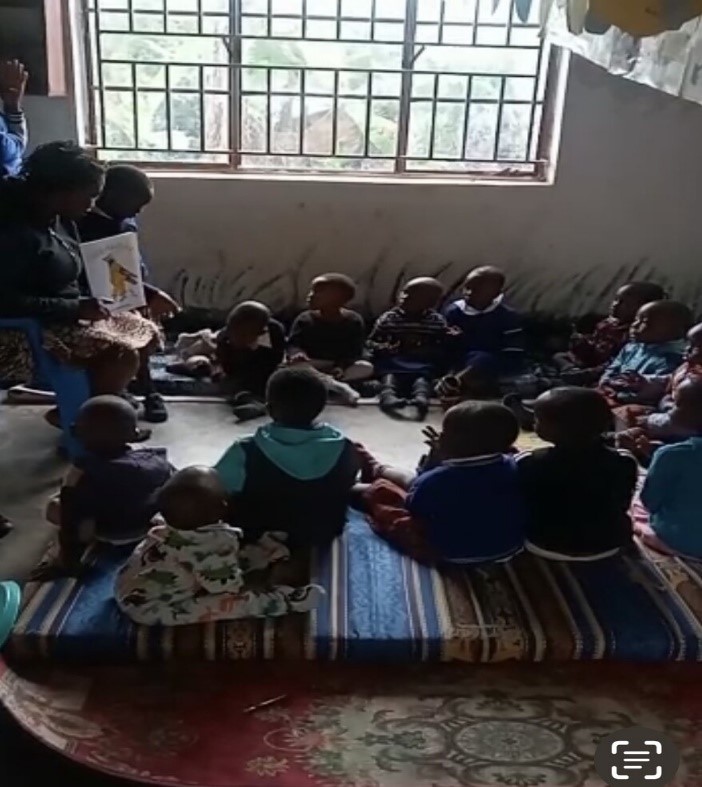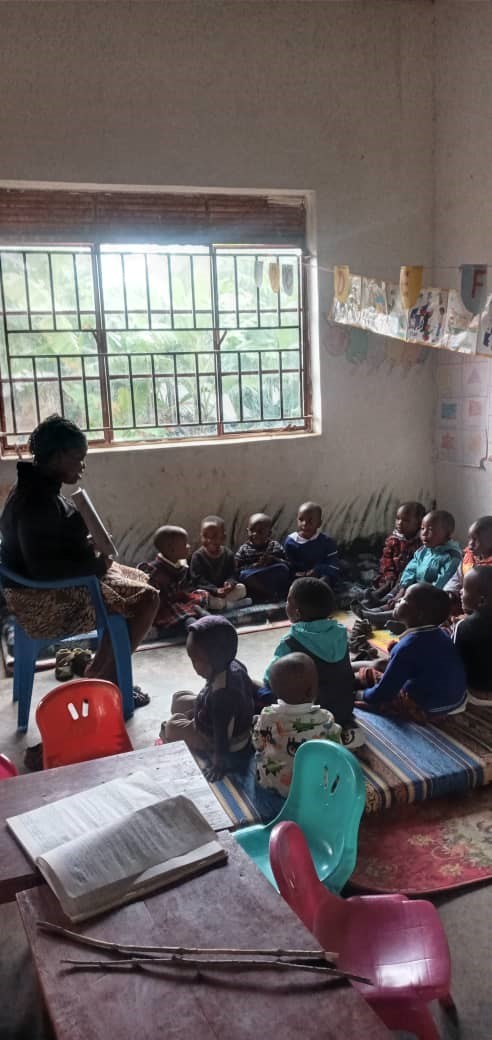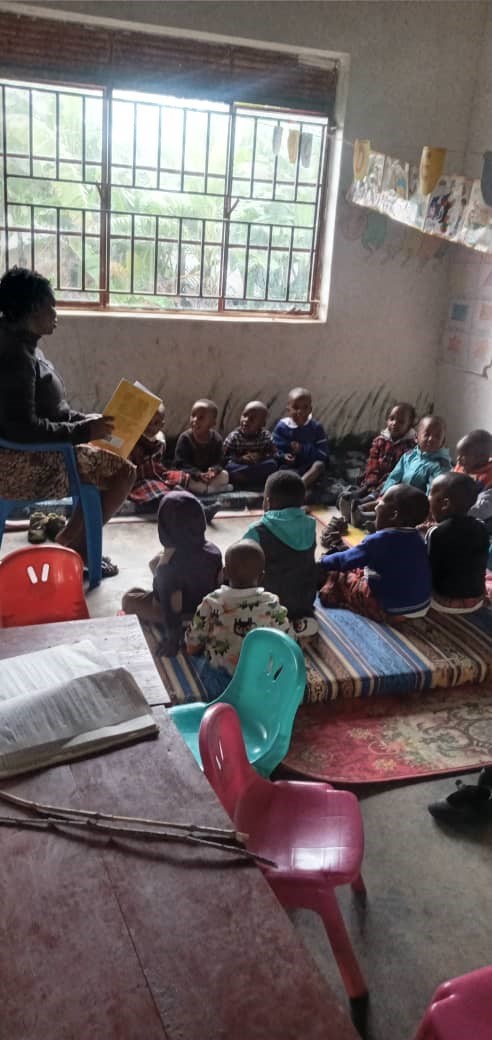
Cable the Crow has flown from the north-east of England to the world's second-largest continent
Cable the Crow has finally reached Uganda in Africa, after almost three months of traveling via the various postal systems.
English is a second language for these children; in this newly formed Ugandan school, and the children are not yet able to understand the story. The teacher has commenced with an important fun activity of 'picture reading,' which is an activity in which children are shown a picture, to which they observe and present their observation, either written or orally; in this case, it is oral. ‘Picture reading,’ supports the development of early literacy skills, in conjunction with developing observational skills, analysing skills and visual thinking; thus, enabling the confidence to read.
The teacher related the pictures to a song they all know about a crow and the children then imitated the sound of the crow. When the children know and understand the pictures, they will commence the actual reading of the story. And only when the children can read ‘Cable the Crow,’ may they then begin to comprehend the main themes of the book which are: relationships, friendships, inclusiveness; hardships and persistence; accepting gracefully that it is ok to fail sometimes and start again; patience; contemporary messages re-litter and the environment; kindness and sharing and conclusively, the mystery of bird life.
The activity of ‘picture reading,’ carried out through the book of: ‘Cable the Crow,’ has provided a paradigm that conveys language barriers can very much be dispelled by pictures and can be used by way of communication. It also emphasises the sheer importance and relevance of children’s pictures books within the developmental stages of infants.



Post Views : 417